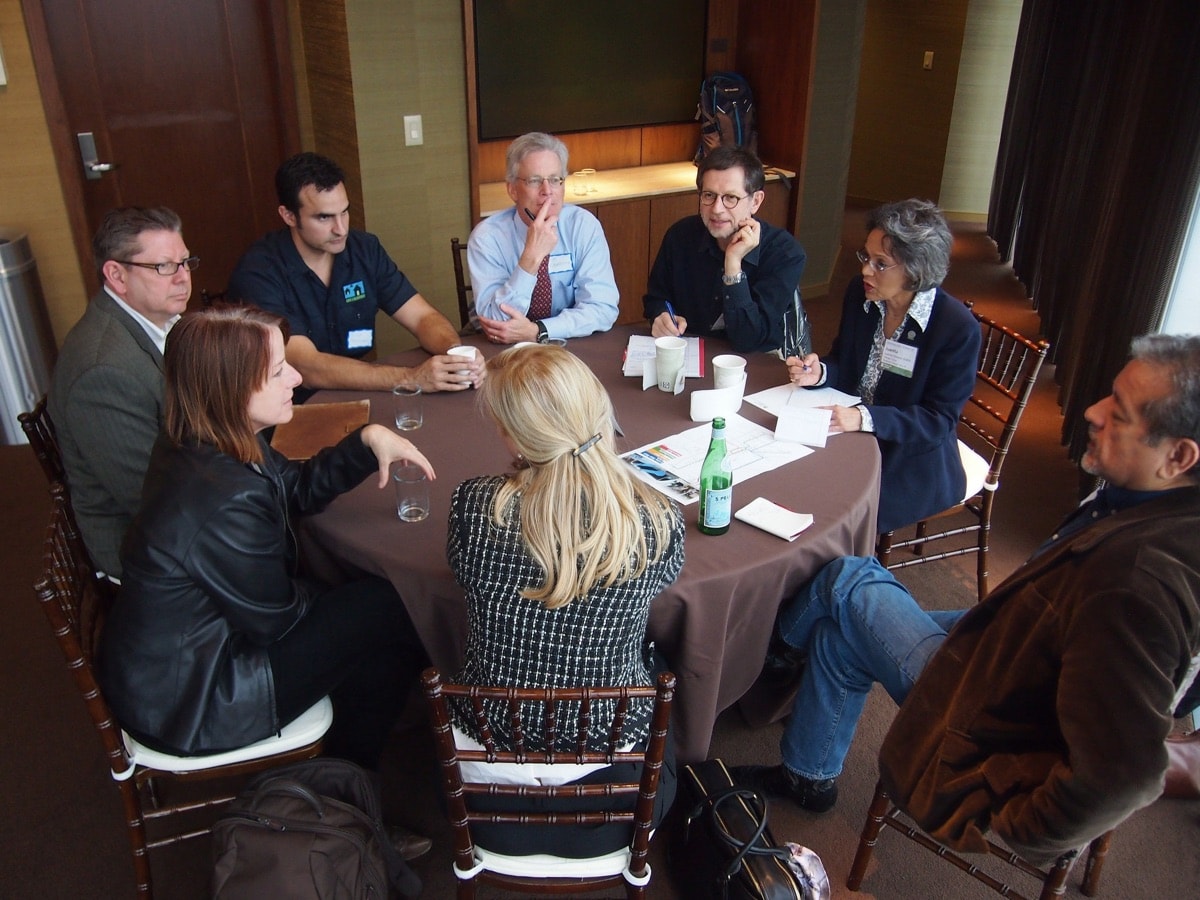ABOUT
Land Use Fellowship
The Daniel Rose Land Use Fellowship provides one year of technical assistance to an annual class of four cities on an urban development challenge of their choosing. Rose Fellows also receive leadership training and professional development opportunities from the National League of Cities (NLC) and Urban Land Institute (ULI).
Land use is often a controversial issue for local governments. Different constituencies may have differing values that are difficult for public leaders to balance.  The opportunities presented by a major land use change, despite potential for significant public benefits, are frequently riddled with political risk. Questions abound about the appropriate roles and benefits for private parties, the responsibilities of government, and the appropriate roles and benefits for different types of stakeholders. Challenging land use questions often result in cities getting stuck for years rehashing the same debates while costs rise and opportunity slips further away. The Land Use Fellowship is intended to help its fellowship cities get unstuck and develop an approach toward achieving the social, environmental, and economic benefits of a major land use opportunity.
The opportunities presented by a major land use change, despite potential for significant public benefits, are frequently riddled with political risk. Questions abound about the appropriate roles and benefits for private parties, the responsibilities of government, and the appropriate roles and benefits for different types of stakeholders. Challenging land use questions often result in cities getting stuck for years rehashing the same debates while costs rise and opportunity slips further away. The Land Use Fellowship is intended to help its fellowship cities get unstuck and develop an approach toward achieving the social, environmental, and economic benefits of a major land use opportunity.
The mayors of four large American cities are invited to participate each year. They each in turn select three fellows (city department or public agency directors with land use decision-making authority) and a project manager who together choose a local land use challenge on which they will receive technical assistance from experts assembled by the Rose Center and their peers from the other three fellowship cities. The program of work includes working retreats at annual meetings of NLC and ULI, a study tour of another US or foreign city, and peer exchange panels to each of the four fellowship cities.
The Rose Center assigns each fellowship city two faculty members (experts in urban design and development) who co-chair their peer exchange panel, provide additional advice and feedback at the working retreats, and can return to each city for a short follow-up visit. Each fellow also serves as a panelist to another fellowship city. Additional subject matter experts and Rose Center Advisory Board members (sitting and former mayors, planning directors and real estate industry leaders) also participate to provide public- and private-sector perspectives.
Previous topics include:
- Leveraging new public improvements in a formerly neglected neighborhood to attract private investment in an equitable way
- Attracting sustainable infill development to a transit corridor
- Balancing interstate and regional transportation needs along a major arterial with the goal of local economic development
- Developing an approach for the long-term redevelopment of a large infill site adjacent
- to downtown
- Creating a strategy for activating an underutilized waterfront adjacent to downtown

